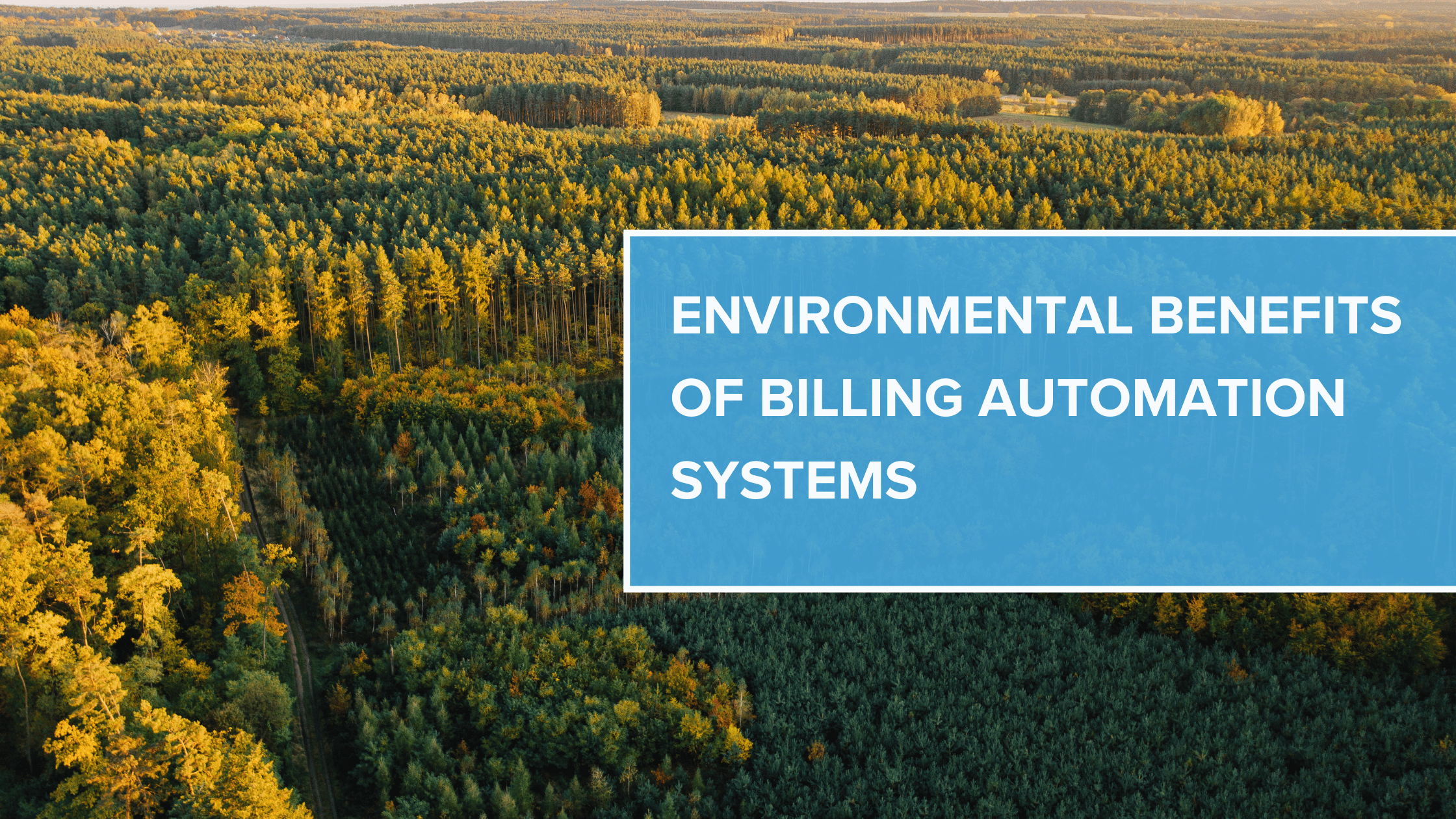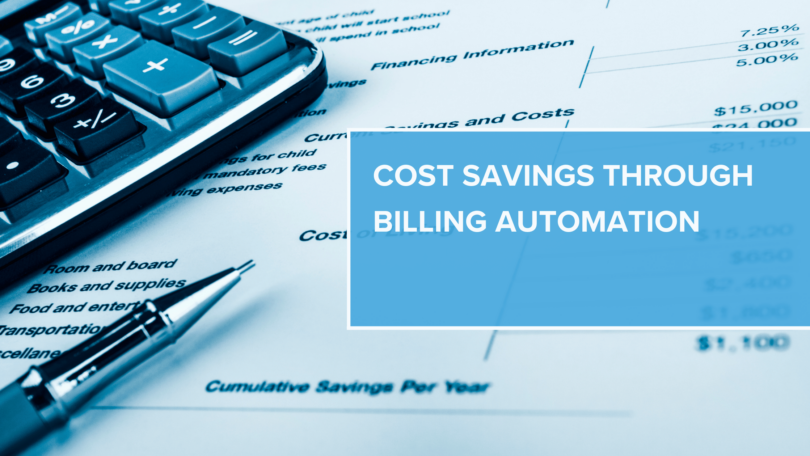Environmental Benefits of Billing Automation Systems
Introduction:
In today’s world, **environmental considerations** are increasingly influencing both business decisions and consumer preferences. As companies seek ways to reduce their carbon footprint and adopt **eco-friendly business practices**, the shift to **billing automation systems** is becoming a key part of their sustainability strategies. By transitioning to **paperless billing**, businesses can significantly reduce paper usage, lower carbon emissions, and minimize the need for physical storage. Emersion’s billing automation platform supports this shift by offering comprehensive paperless solutions that not only improve efficiency but also help businesses minimize their environmental impact.
How Billing Automation Contributes to Environmental Sustainability
Traditional, manual billing processes rely heavily on paper, ink, and physical storage space, contributing to deforestation, waste, and carbon emissions. Here’s how **billing automation** helps businesses adopt more sustainable practices:
1. Reduced Paper Consumption
One of the most immediate environmental benefits of **billing automation** is the reduction in **paper usage**. By eliminating the need for paper invoices, statements, and receipts, businesses can save thousands of sheets of paper annually. This reduction in paper consumption helps lower the demand for paper production, which in turn decreases deforestation and the energy-intensive processes involved in paper manufacturing.
2. Decreased Carbon Emissions
Printing, mailing, and transporting paper invoices contribute to a company’s **carbon footprint**. By switching to **electronic invoicing** and digital payment processes, businesses can drastically reduce the emissions associated with paper billing, transportation, and the use of office equipment. Automated billing processes that deliver invoices via email or through online portals significantly lower the energy and resources needed for billing operations.
3. Less Physical Storage and Waste
With traditional billing, businesses often need to store physical records, which requires space and resources for filing cabinets, storage rooms, and document archiving. Over time, these paper records also contribute to waste when they are disposed of. **Billing automation** reduces the need for physical storage by digitizing invoices and payment records, making it easier to manage billing data while reducing the waste associated with physical documents.
4. Increased Energy Efficiency
Automated billing systems run on digital platforms, reducing the need for energy-intensive printers, copiers, and scanners. By minimizing the reliance on these devices, businesses can lower their energy consumption and reduce the environmental impact of their operations. Furthermore, cloud-based billing platforms like Emersion’s use energy-efficient servers that help further reduce energy consumption compared to maintaining in-house IT infrastructure for billing processes.
5. Supporting Remote Work and Digital Transformation
As more businesses embrace **remote work** and digital transformation, the need for paper-based processes diminishes. Billing automation supports this transition by providing **remote access** to billing systems, allowing employees to manage invoicing and payment collections from anywhere. This reduces the need for printed materials and enables businesses to operate more sustainably with digital solutions.
Key Features of Eco-friendly Billing Automation Systems
To maximize the environmental benefits of billing automation, businesses should look for systems with features that promote sustainability. Here are some key features to consider:
1. Paperless Invoicing
The most critical feature of an **eco-friendly billing automation system** is the ability to send **paperless invoices**. These systems allow businesses to generate and send electronic invoices via email or online customer portals, eliminating the need for paper and reducing the environmental impact of billing operations.
2. Digital Payment Processing
An automated billing system should support **digital payment methods**, such as credit card payments, bank transfers, and digital wallets. These methods reduce the need for paper checks and physical payment receipts, further lowering the environmental impact associated with traditional payment processing.
3. Cloud-based Storage and Document Management
Cloud-based billing systems allow businesses to store and manage their billing records digitally, eliminating the need for physical storage. **Cloud storage** reduces the use of filing cabinets and storage rooms, while also cutting down on the energy consumption and waste associated with maintaining paper records.
4. Automated Reporting and Analytics
Billing automation systems provide **automated reports** and analytics in digital format, which can be shared electronically with management teams. This eliminates the need for printed reports and further supports the company’s sustainability goals by reducing paper usage and energy consumption.
5. Integration with Eco-friendly Business Tools
Many businesses use a range of digital tools to reduce their environmental impact, from **CRM systems** to **accounting software**. A billing automation platform that integrates seamlessly with these tools enables businesses to manage all of their operations digitally, reducing the overall need for paper and promoting eco-friendly business practices.
How Emersion Supports Eco-friendly Billing Automation
Emersion’s platform is designed to help businesses minimize their environmental impact through **paperless billing** and automated processes. Here’s how Emersion supports businesses in adopting **sustainable billing practices**:
1. Paperless Invoicing and Statements
Emersion offers complete **paperless invoicing** solutions, allowing businesses to send invoices electronically and receive payments online. This not only reduces paper consumption but also eliminates the emissions associated with mailing physical invoices. Customers receive their invoices instantly via email, improving efficiency while supporting sustainability.
2. Digital Payment Processing
Emersion integrates with multiple **digital payment gateways**, enabling businesses to accept payments electronically. This reduces the need for paper checks and receipts, making payment processing faster, more efficient, and eco-friendly.
3. Cloud-based Storage and Document Management
Emersion’s platform is cloud-based, allowing businesses to store and manage their billing data digitally. This eliminates the need for physical storage, reduces paper waste, and ensures that billing records are easily accessible from anywhere.
4. Automated Reporting and Analytics
Emersion provides businesses with **digital reports** and analytics, which can be shared electronically with key stakeholders. This eliminates the need for printed reports, reducing both paper usage and the environmental impact of generating physical documents.
5. Integration with Digital Business Systems
Emersion integrates seamlessly with other **digital business tools**, such as accounting software and CRM systems. This allows businesses to manage their operations entirely online, further supporting their efforts to reduce their environmental footprint through digital transformation.
What It Means for Your Business
- Reduce Paper Usage: Transitioning to paperless billing significantly reduces the amount of paper used in your operations, supporting your company’s sustainability goals.
- Lower Carbon Emissions: By eliminating the need for printed invoices and physical mail, businesses can reduce their carbon footprint and contribute to global efforts to combat climate change.
- Minimize Physical Storage Needs: Storing billing records digitally reduces the need for physical filing systems, freeing up space and cutting down on the environmental impact of document storage.
- Improve Energy Efficiency: Cloud-based billing systems reduce the need for energy-intensive office equipment like printers and copiers, improving overall energy efficiency in the workplace.
- Enhance Operational Efficiency: Paperless billing and automated processes not only reduce environmental impact but also improve overall business efficiency, leading to cost savings and streamlined operations.
Real-World Example: Going Paperless with Emersion
A growing retail business was looking for ways to reduce its environmental impact and improve efficiency. By implementing Emersion’s **billing automation system**, the company was able to switch to **paperless invoicing**, eliminating thousands of paper invoices and saving significant costs on printing and mailing. The company also adopted digital payment methods, reducing the need for paper checks and receipts. With Emersion’s cloud-based storage, the business was able to manage its billing records digitally, freeing up office space previously used for document storage. As a result, the company improved its sustainability while also enhancing its operational efficiency.
Call-to-Action
Ready to make your billing processes more eco-friendly? Emersion’s billing automation platform provides the tools you need to go paperless, reduce your environmental impact, and improve operational efficiency. Contact us today to learn how Emersion can help your business transition to sustainable billing practices.
Questions for Reflection
- How much paper is currently used in your billing processes, and could going paperless help reduce your environmental impact?
- Are you still relying on physical storage for billing records, and could cloud-based storage offer a more sustainable alternative?
- Could automating your billing processes improve both efficiency and sustainability in your operations?
- Would adopting digital payment methods help reduce the environmental impact of processing checks and other paper-based payments?
- How could real-time digital reporting help your business operate more efficiently while minimizing its environmental footprint?
Learn more about Emersion’s billing automation solutions and how they can support your company’s commitment to sustainability through eco-friendly billing practices.




